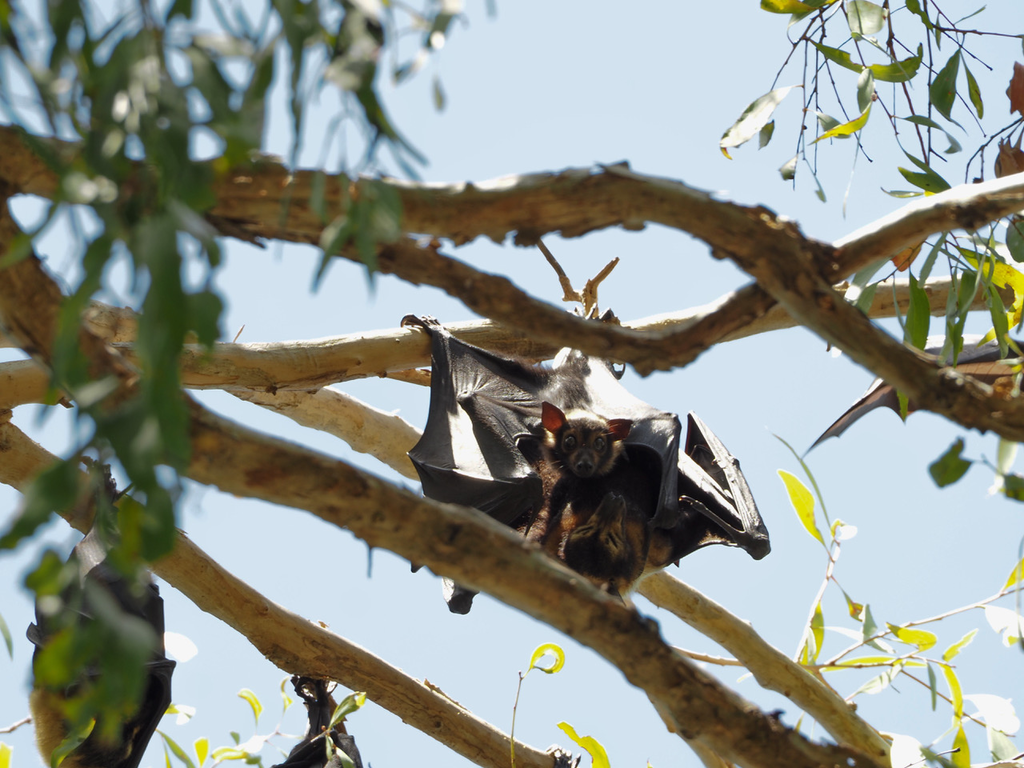
Flying Fox season sparks health warnings and new Council plan
WILDLIFE COEXISTENCE

As the unmistakable sounds and smells of bat breeding season fill the air across our Shire, public health officials are urging caution around flying foxes, while Douglas Shire Council unveils a new plan to manage these essential, yet controversial, creatures.
Tropical Public Health Services director Dr Jacqui Murdoch emphasised the importance of flying foxes in pollination and pest control but warned of the risks posed by Australian bat lyssavirus (ABLV), a rabies-like disease that can be transmitted through bites, scratches, or contact with bat saliva.
“Any bat may carry ABLV, even if it looks healthy. So far this year, 13 people in Queensland have required medical treatment after being bitten or scratched by bats.”
“Similar to being bitten by a rabid dog or monkey in Asia, anyone bitten or even scratched by a bat needs a series of injections to prevent a potentially fatal illness.”
“During breeding season, you are more likely to find fallen pups or sick or injured bats, often stuck on a wire fence. They will bite straight through gloves or a towel, so don’t risk it.”
Dr Murdoch urged anyone bitten or scratched to immediately wash the wound, apply antiseptic, and seek medical attention.
Meanwhile, Douglas Shire Council is addressing residents’ concerns about flying fox colonies with a $42,000 state-funded management plan.
“Council has heard from residents frustrated by the deafening noise of nearby colonies or the mess bats leave behind,” Mayor Lisa Scomazzon said.
“However, we must also remember that flying foxes are part of our natural environment.”
The plan focuses on managing flying fox roosts in a way that minimizes community disruption without harming the bats.
“This is a proactive step to balance the needs of residents with the welfare of these protected species,” Mayor Scomazzon said.
Ecological significance
While public health officials stress safety, local flying fox advocate, Kate Koel, founder of Flying-foxes FNQ, a website focusing on rescuing and studying flying foxes in the Douglas Shire area, believes that the impact of flying-foxes in the region is minimal.
“While a small number of residents may be directly affected by noise and odours from the nearby camp, it is important to consider that flying-foxes have a long history in the area, predating the development of the town, as shared by Traditional Owners and long-term residents,” Ms Koel said.
“If done well, a roost management plan will recognise the ecological significance of flying-foxes as important pollinators and seed dispersers for the Wet Tropics.
“This has direct links to the success of the economy and more importantly to support the ongoing health of vital ecosystems.
“A key component to the success of managing any flying-fox roost lies in community education and awareness and the importance of coexistence with our incredible wildlife.”
Did you enjoy this article?
Help us continue to bring you stories that resonate with your community. Please consider supporting below.
Got a news tip?
Send a news tip or submit a letter to the Newsport Editor here.
Comments
Comments are the opinions of readers and do not represent the views of Newsport, its staff or affiliates. Reader comments are moderated before publication to promote valuable, civil, and healthy community debate. Visit our comment guidelines if your comment has not been approved for publication.
